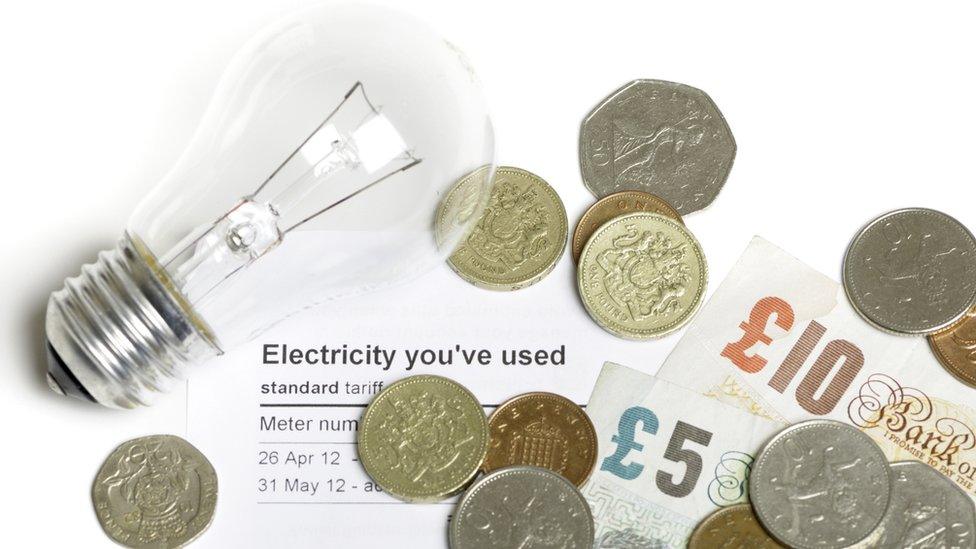Ofgem boss: I'm sorry for failing vulnerable consumers
- Published

Dermot Nolan, the chief executive of energy regulator Ofgem, has apologised for failing vulnerable consumers.
"We could have done better, and should have done better, for vulnerable customers," he told MPs on the Business and Energy Committee.
Asked whether he wished to apologise to them, he said, "I do."
However, he added that such customers would benefit from the forthcoming price cap on standard variable tariffs (SVTs).
As many as 56% of households - around 11.5 million consumers - are still on SVTs, which are significantly more expensive than fixed-term deals.
MPs on the Business and Energy Committee are examining the government'sto cap such tariffs.
'Not passive'
Mr Nolan was also accused of being too passive as a regulator.
"I do not seem passive," he replied. "We are rolling our sleeves up very strongly."
But he said he regretted that price controls had not been imposed earlier.
"I wish we had acted earlier in putting a price cap in place for vulnerable consumers," he said.
From next month, a million poorer consumers will see their bills reduced by a price cap, and a further two million will benefit by next winter.
Ofgem believes they will save an average of ÂĢ120 a year as a result.
The poorest households on pre-payment meters already have their bills capped.
Savings
However, many in the industry, including one former regulator, have said a cap could reduce competition.
Stephen Littlechild was the electricity regulator in the 1990s.
Writing in the on Wednesday, he suggested a better solution would be for each of the big six energy suppliers to give up 10% of their customer base, which could be sold off to new entrants in the market.
Three of the biggest suppliers have already said they plan to end SVTs anyway.
British Gas will stop selling SVTs to new customers by April, and those coming off cheaper fixed-price deals will no longer be automatically transferred to an SVT.
SSE and E.On have announced similar plans.
The proposed price cap is due to last until 2020 in the first instance, but could be extended to 2023.
However, it is not yet known when it will begin.